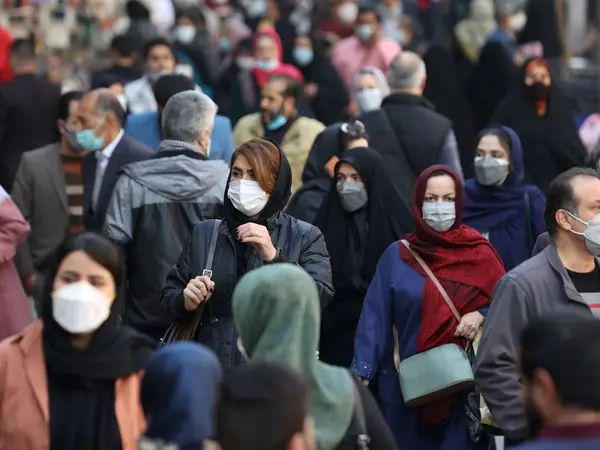Iran's economy minister has said Thursday that the government has no immediate solution for the hardship families face, urging people to be patient.
"We have no immediate solution for the problems of families except compensation through adjusting the amount of cash handouts but there are efforts underway the results of which can be felt in a few months’ time," Ehsan Khandouzi said at a meeting with economy professors.
The cash handouts referred to amount to $3-4 dollars a month, for each person.
Khandouzi referred to a decision by President Ebrahim Raisi’s government to eliminate a scheme that since 2018 provides cheap dollars to importers of food, medicine and animal feed as a way to keep prices low. In fact, providing dollars at a rate seven times lower than the market is a subsidy meant to help ordinary people against a high, double-digit inflation rate since 2018 when the United States imposed sanctions on Iran.
Currently the street rate for one US dollar is 300,000 rials, while the subsidized dollar for food imports is 42,000 rials.
Concerns have recently been growing over the consequences of the plan which experts say will hit the lower-income families very hard as the “reform” is expected to affect the prices of staples such as bread, rice, dairy products, and protein foods severalfold.
The elimination of the subsidy is not to be implemented before late March when the budget law for the next Iranian calendar year is put into effect, but media last week reported that food prices are already rising in anticipation of the move.
The media last week reported that the price of eggs has already been affected
as production of eggs is highly reliant on chicken feed, currently imported at the subsidized exchange rate. The price of a pack of thirty eggs that sold for around 400,000 rials last week has reportedly risen to around 600,000, while municipality-run markets have also increased their price by 40,000 rials.
In US dollars, 600,000 rials is around $2 and may sound cheap, but a typical worker in Iran earns around a $100-120 a month and cannot afford meat any longer, relying on eggs as a nutritious food.
"Experts and lawmakers' remarks about the possibility of elimination of the 42,000 rial rate led to some importers to withhold chicken feed from the market," Naser Nabipour, Chairman of Egg Producers Union, told Mehr news agency Thursday.
Hardliners who constantly criticized the Rouhani administration for "neglecting people's subsistence" can no longer deny the increasing pressure on lower-income families and growing poverty that is pushing middle-income families into poverty.
"The poverty line for a family of four is at a minimum of 120 million rials a month. This means that around 70 percent of Iranians now live under the relative line of poverty," economist Morad Rahdari told Shia News Association (Shafaqna) last week. Rahdari explained that relative poverty means not being able to afford anything other than minimum essentials such as food and housing.
Rahdari blamed unemployment for the growth of poverty. According to Rahdari the real number of unemployed is 20 million, not 3 million as government statistics claim because those who work even one hour per week are considered as employed.
He also said lack of investment, resulting from sanctions, more people to fall below the poverty line in the past 12 years. "There will be crisis after crisis, lack of development, more poverty and increasing corruption if the issue of sanctions is not resolved and the country falls behind in development more than this," he warned.
